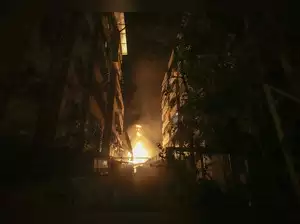An Israeli airstrike in Beirut has reportedly killed Hezbollah leader Hassan Nasrallah and a prominent general in Iran’s paramilitary Revolutionary Guard, Gen. Abbas Nilforushan. This development, confirmed by Iranian media, marks a significant escalation in the ongoing Israel-Hamas conflict, which has been intensifying for nearly a year.
Nilforushan, 58, was killed in the same strike that took Nasrallah’s life. The Tehran Times reported on the incident, with Iranian judiciary deputy head Ahmad Reza Pour Khaghan describing Nilforushan as a “guest to the people of Lebanon.” He further stated that Iran has the right to retaliate under international law.
As deputy commander for operations in the Revolutionary Guard, Nilforushan oversaw ground forces and was integral to Iran’s military strategy in the region, which includes supporting Hezbollah against Israel. His role in Lebanon during the airstrike has not been clarified, but the Revolutionary Guard has historically armed and trained Hezbollah as part of its regional strategy.
Nilforushan had a history of vocal opposition to Israel, criticizing the country as Iran’s primary enemy. In 2022, he downplayed Israel’s stability, suggesting it was in a “vulnerable and doomed” state.
The airstrike and the deaths of Nasrallah and Nilforushan come amid heightened tensions and hostilities between Israel and Hezbollah, which have included cross-border strikes and significant civilian casualties. The conflict escalated dramatically after Hamas’s unprecedented attack on Israel on October 7, which led to thousands of deaths and abductions.
As Iran contemplates its response, it has signaled a desire to engage in negotiations with the West over sanctions affecting its economy, despite the recent escalation in military actions. The political landscape in Iran is shifting following the election of reformist President Masoud Pezeshkian, who has indicated a willingness to negotiate over Iran’s nuclear program while maintaining a critical stance against Israel.
The situation remains fluid, with calls for retaliation likely to intensify, particularly in light of the recent losses suffered by Iran and Hezbollah.




